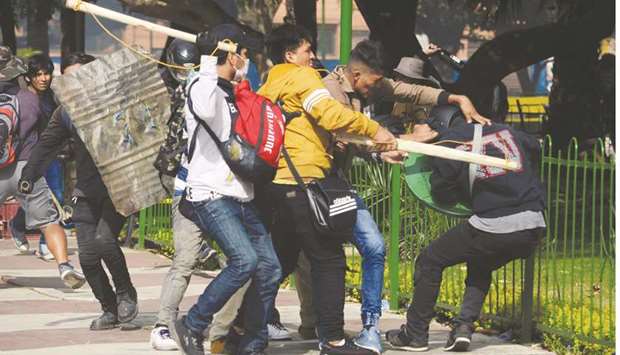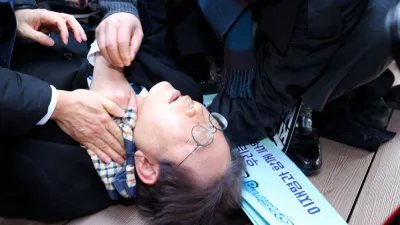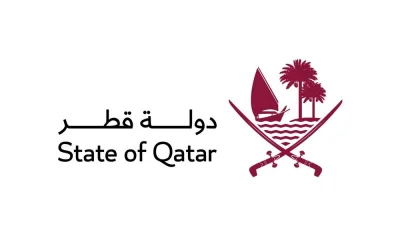Bolivia’s government slammed “shameful” violence that led to scores being injured and one killed on Wednesday in protests over a contentious presidential election last month, blaming clashes on the opposition as anger rises on both sides.
Government critics, meanwhile, pointed the finger at supporters of President Evo Morales, whose October election win was marred by allegations of fraud after an abrupt halt in the vote count and an unusual swing in the leftist leader’s favour.
In a press conference yesterday, Vice President Alvaro Garcia Linera called on opposition leaders Carlos Mesa and Luis Fernando Camacho to help stop the violence and heed an ongoing audit of the vote by the Organisation of American States (OAS).
Mesa, the runner-up in the October 20 vote, and civic leader Camacho, have been calling instead for Morales — the country’s leader since 2006 — to step down and to hold new elections without him.
Camacho who has become a symbol of opposition to Morales arrived late on Wednesday in capital La Paz, where he plans to march to the presidential palace to deliver a pre-written letter of resignation for Morales to sign.
The gambit, after he was earlier blocked from arriving, has sparked a fierce backlash from government supporters, while helping rally a split opposition after weeks of protests and strikes around the country since the vote.
Images and televisions footage on Wednesday showed groups clashing in city streets around the country, with particular violence in the cities of Cochabamba and La Paz.
A young man was confirmed killed, while images of a local mayor covered in red paint by anti-government supporters circulated widely.
Mesa said on Twitter yesterday that the young man, named as Limbert Guzman, had been “murdered” by Morales supporters and blamed the government for stoking the violence.
The fatality brings to three the death toll in clashes following the controversial October 20 election.
Morales tweeted “deep regret” over the death and described the student as “an innocent victim of violence promoted by political groups that encourage racial hatred among Bolivian brothers.”
Earlier the powerful Catholic Church cautioned Camacho, against an open challenge to Morales’ authority. “Asking for the president’s resignation is a radical measure,” said Sucre Archbishop Jesus Juarez.
Anti-Morales protests were also held Wednesday in the cities of Santa Cruz, Sucre, Tarija and Potosi, shutting down state offices and companies. Bolivia’s state oil company warned of likely fuel shortages because of the protests. “It is impossible to supply service stations,” it said in a statement.
Morales, speaking at a naval ceremony on Wednesday, insisted that the military must “serve the people” and support his government.

Coca growers, supporters of Bolivia’s President Evo Morales hit anti-Morales demonstrator in Cochabamba, Bolivia.


